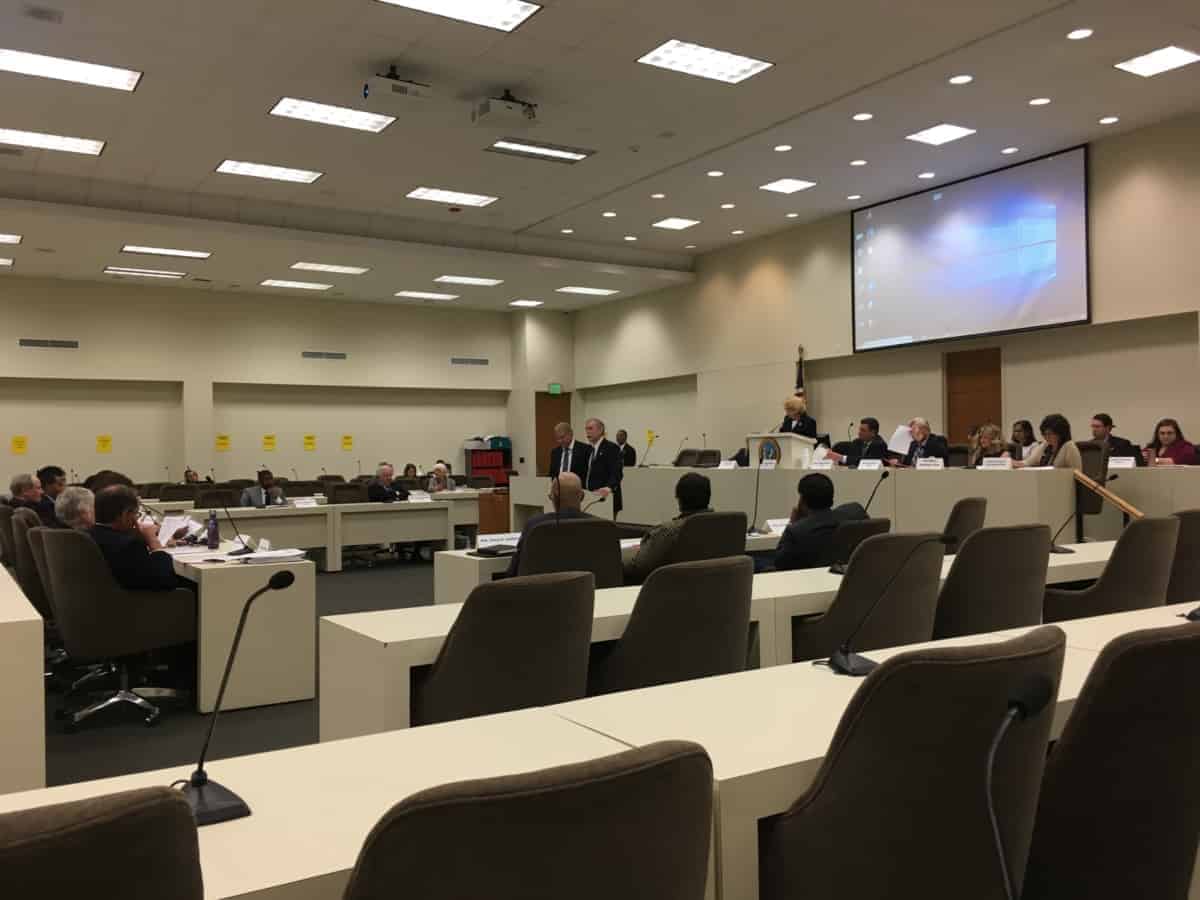A pair of local House bills became the opening salvo in the war over calendar flexibility for school districts in North Carolina today.
House Bills 12 and 13 would grant the option for a handful of local districts to set the start and stop dates for their school districts and were heard in the House K-12 education committee this afternoon.
House Bill 12 would grant the flexibility to the Alamance-Burlington School System and was filed by Republican Alamance Representatives Stephen Ross and Dennis Riddell at the request of their district’s school board.
“They are after all, the locally elected and chosen leaders of our K-12 public school system in Alamance County,” Riddell said when presenting his bill, adding later, “This represents their view on what would be best locally for the Alamance-Burlington school system.”
The state says that students must be in school for a minimum of 185 days a year or 1,025 hours of instruction. It also says that schools can’t start earlier than the Monday closest to Aug. 26, and they can’t end later than the Friday closest to June 11.
Riddell noted two issues in particular that the district is hoping to solve through calendar flexibility. One is the fact that students in the district’s high schools and middle schools have to take their high-stake’s winter exams after winter break because of the state mandated school calendar.
The second is the fact that the school system’s calendar is misaligned with the district’s community colleges, meaning that students who take community college classes while still in high school, or are moving to community college from high school, are at a disadvantage.
“It puts our young people behind and prevents them from having that alternative,” he said.
The second bill heard in the House Education Committee today was House Bill 13, filed by Representatives Mitchell Setzer, R-Catawba, and Julia Howard, R-Davie.
This bill would grant calendar flexibility to Catawba County Schools, Davie County Schools, Hickory Public Schools, and Newton-Conover City Schools. The language of the bill emphasizes the need to align the public school systems in these areas with the local community college calendars.
“Whereas, the local boards of education for the local school administrative units located in Catawba County and Davie County should be able to schedule school opening and closing dates for any school in their respective units to coincide with the opening and closing dates of Catawba Valley Community College or Davidson County Community College; and
Whereas, school calendar flexibility would benefit all students in the local school administrative units of Catawba County and Davie County who are enrolled in classes through Catawba Valley Community College or Davidson County Community College by allowing them to align their fall and spring semesters with the fall and spring semesters at their respective community college; and
Whereas, school calendar flexibility would allow local school administrative units and community colleges in Catawba County and Davie County to meet the workforce development needs in their respective counties more effectively than the current structure by helping high school and college students develop the skills necessary for business and industry…”
When Howard walked up to present on the bill, she started by saying she could just repeat the reasoning expressed by the sponsors of House Bill 12. She then went on to say that the bill was necessary to help make sure the state has the “best prepared workforce,” and she echoed the sentiments of Riddell that the local school boards are elected by the community and the legislature should not stand in the way of their wishes.
Advocates of calendar flexibility argue that the tourism industry has held up calendar legislation because businesses that rely on student workers over the summer don’t want districts to cut into their season.
Rep. Frank Iler, R-Brunswick, seemed poised to give some of those arguments today, saying he had information to pass along about the impact of calendar flexibility on tourism, but since the conversation today was preliminary and there would be no vote, he didn’t voice his concerns publicly.
There is large-scale support for calendar flexibility. Back in 2015, a huge number of bills were filed to grant calendar flexibility to different school districts and even statewide. Those bills mostly went nowhere, though the last long session saw two calendar flexibility bills pass the House. They stalled in the Senate, and to date no bills on this subject have cleared the full General Assembly. There is even a bipartisan coalition of organizations that has been advocating for calendar flexibility for years.
Lawmakers also heard a brief history of school calendar laws during the committee meeting today.
Until 2011, the state required that students attend 180 days of school and 1,000 hours of instruction. In 2011, that changed so students had to attend 185 days of school and have 1,025 hours of instruction, with districts having the option of converting five of those days into teacher workdays. In 2012, the law changed again. Students had to attend 185 days of school OR 1,025 hours, and the teacher workday option was removed.
Along that timeline, the state-mandated start and stop times for public schools also changed. Until 2004, local school boards had discretion over when school started and stopped. In 2004, the law changed so that school could start no earlier than Aug. 25 and end no later than June 10. In 2012, the law changed again, with schools not able to start earlier than the Monday closest to Aug. 26 and end no later than the Friday closest to June 11.
There are also some exceptions to the state’s calendar law, including year-round schools, restart schools, and others.
Rep. Linda Johnson, R-Cabarrus, a chair of the committee, said a lot has changed with education since 2003.
“We want you to see what the problems are and what has changed in education and see if we can’t get a solution,” she told the committee.



